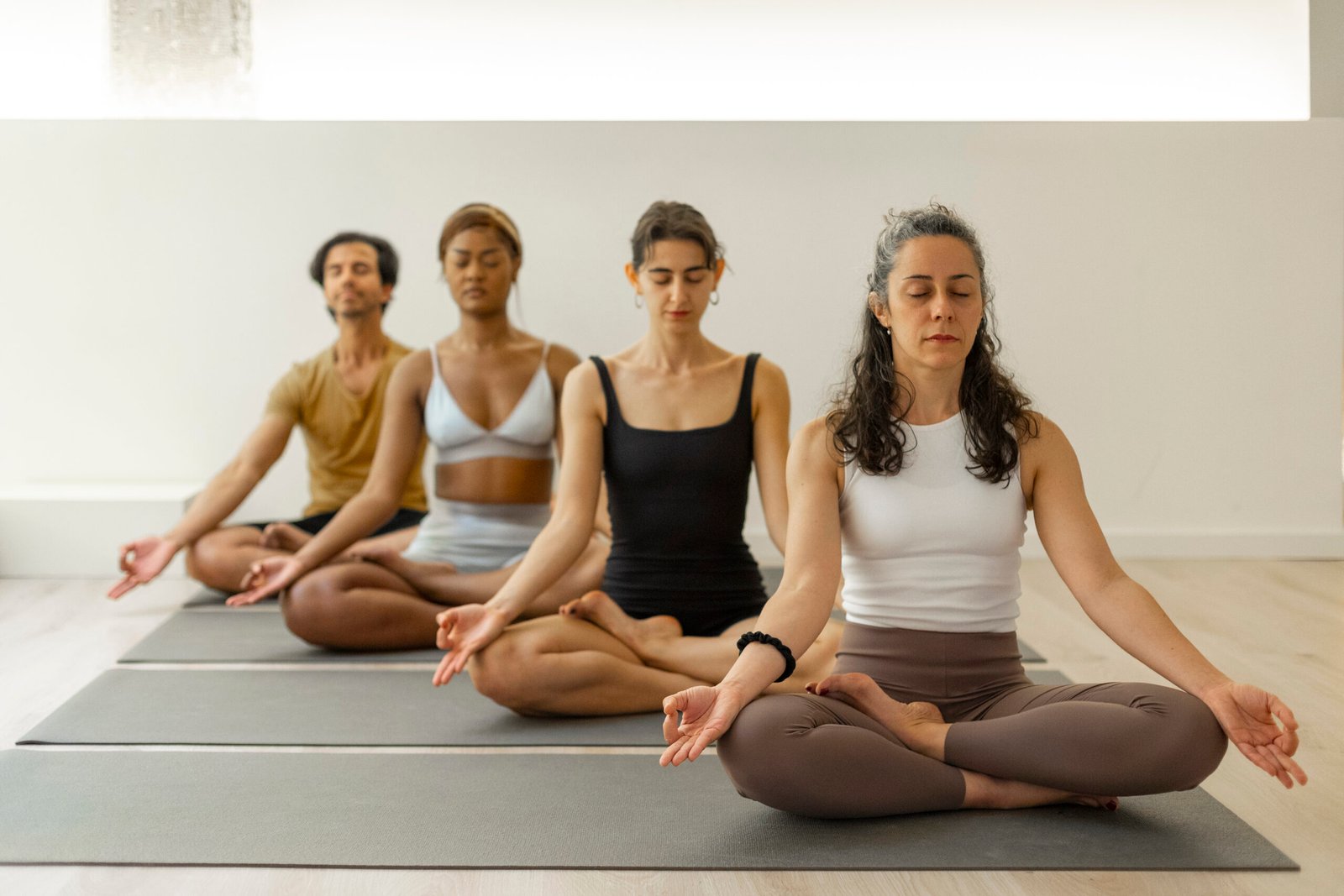
Aging gracefully is something many aspire to, and in recent years, more and more people are turning to yoga as a practice to help achieve that goal. Unlike high-intensity workouts, which can become challenging to maintain with age, yoga is a gentle yet powerful approach that enhances physical, mental, and emotional well-being. From flexibility and strength to balance and mental clarity, yoga offers a multitude of benefits that support healthy aging.
1. Enhanced Flexibility and Mobility
With age, muscles and joints naturally lose flexibility, which can lead to stiffness and a reduced range of motion. Yoga emphasizes gentle stretching and movement, helping the body remain flexible and adaptable. By incorporating yoga into a regular routine, seniors can retain mobility, which is essential for performing daily tasks and staying active.
2. Strength and Balance
One of the most common age-related issues is a decline in muscle strength and balance, which increases the risk of falls and fractures. Yoga helps build core strength, which is vital for stability. Asanas target different muscle groups and improve balance, coordination, and overall muscle tone. Additionally, the mindful approach to movement practiced in yoga helps seniors become more aware of their bodies, reducing the likelihood of injury.
3. Improved Bone Health
Osteoporosis and brittle bones are common concerns among the elderly. Yoga includes weight-bearing postures that promote bone density and health. By putting gentle pressure on the bones, some poses stimulate bone growth, which can help prevent or manage osteoporosis. Regular practice encourages resilience in bones, reducing the likelihood of fractures and breaks.

4. Cardiovascular Health
Heart disease is one of the leading health risks as we age. Yoga has been shown to improve cardiovascular function by lowering blood pressure, reducing cholesterol, and improving circulation. The deep breathing techniques practiced in yoga—such as Pranayama or controlled breathing exercises—help increase oxygen supply to the body, lower stress levels, and promote relaxation, all of which are beneficial for heart health.
5. Mental Well-being and Stress Reduction
Mental health challenges, such as anxiety and depression, can increase with age due to changes in lifestyle, loss of loved ones, or health concerns. Yoga is renowned for its stress-relieving effects. By encouraging mindfulness and present-moment awareness, yoga reduces anxiety and promotes a calm mind. Meditation and breathing exercises can help manage stress, while poses that focus on grounding, can bring a sense of stability and peace.
6. Cognitive Health and Memory Retention
Yoga enhances blood flow to the brain, which is essential for cognitive health. The practice also involves mindful focus, encouraging the brain to stay sharp and engaged. Studies have shown that yoga and meditation may improve memory, attention, and information processing, potentially delaying the onset of age-related cognitive decline. Pranayama breathing exercises, along with meditation, foster mindfulness, helping individuals maintain mental clarity and focus.
8. Better Sleep Quality
Sleep issues are common in older adults, affecting energy levels and quality of life. Yoga has been shown to improve sleep by promoting relaxation and reducing stress.
9. Social Engagement and Community
Yoga classes provide a social environment where older adults can connect with others, reducing feelings of loneliness and isolation. Community support plays a significant role in healthy aging, and joining a yoga class can help create a sense of belonging, encouragement, and friendship.



